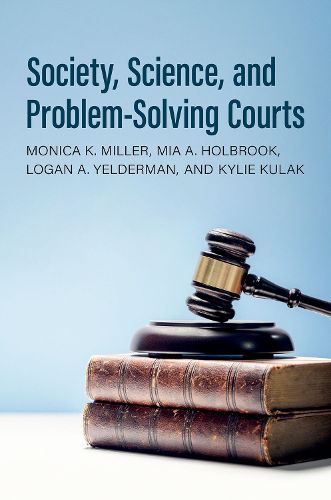Readings Newsletter
Become a Readings Member to make your shopping experience even easier.
Sign in or sign up for free!
You’re not far away from qualifying for FREE standard shipping within Australia
You’ve qualified for FREE standard shipping within Australia
The cart is loading…






Problem-solving courts are special courts that do not simply punish offenders, but use other justice principlesDLlike therapeutic jurisprudence and restorative justiceDLand psychology principlesDLlike anticipated emotion, operant conditioning, and social supportDLto address underlying social issues that contributed to the crime. The U.S. has numerous types of problem-solving courts, such as drug courts, mental health courts, and homelessness courts. Other countries do not have such courts, have altered versions, or have courts for other issues, like aboriginal courts. Comparison of these courts worldwide shows that many societies address their social issues through courts in dramatically different ways than do problem-solving courts in the U.S. Society, Science, and Problem-Solving Courts takes a broad social science approach to explain what societal factors brought about development of the wide variety of problem-solving courts, and what factors prevent such development or make problem-solving courts unnecessary. The book also investigates the role of science and technology in the development, enforcement, and evaluation of problem-solving courts. It is this combination of society and science that makes problem-solving courts possible.
$9.00 standard shipping within Australia
FREE standard shipping within Australia for orders over $100.00
Express & International shipping calculated at checkout
Problem-solving courts are special courts that do not simply punish offenders, but use other justice principlesDLlike therapeutic jurisprudence and restorative justiceDLand psychology principlesDLlike anticipated emotion, operant conditioning, and social supportDLto address underlying social issues that contributed to the crime. The U.S. has numerous types of problem-solving courts, such as drug courts, mental health courts, and homelessness courts. Other countries do not have such courts, have altered versions, or have courts for other issues, like aboriginal courts. Comparison of these courts worldwide shows that many societies address their social issues through courts in dramatically different ways than do problem-solving courts in the U.S. Society, Science, and Problem-Solving Courts takes a broad social science approach to explain what societal factors brought about development of the wide variety of problem-solving courts, and what factors prevent such development or make problem-solving courts unnecessary. The book also investigates the role of science and technology in the development, enforcement, and evaluation of problem-solving courts. It is this combination of society and science that makes problem-solving courts possible.